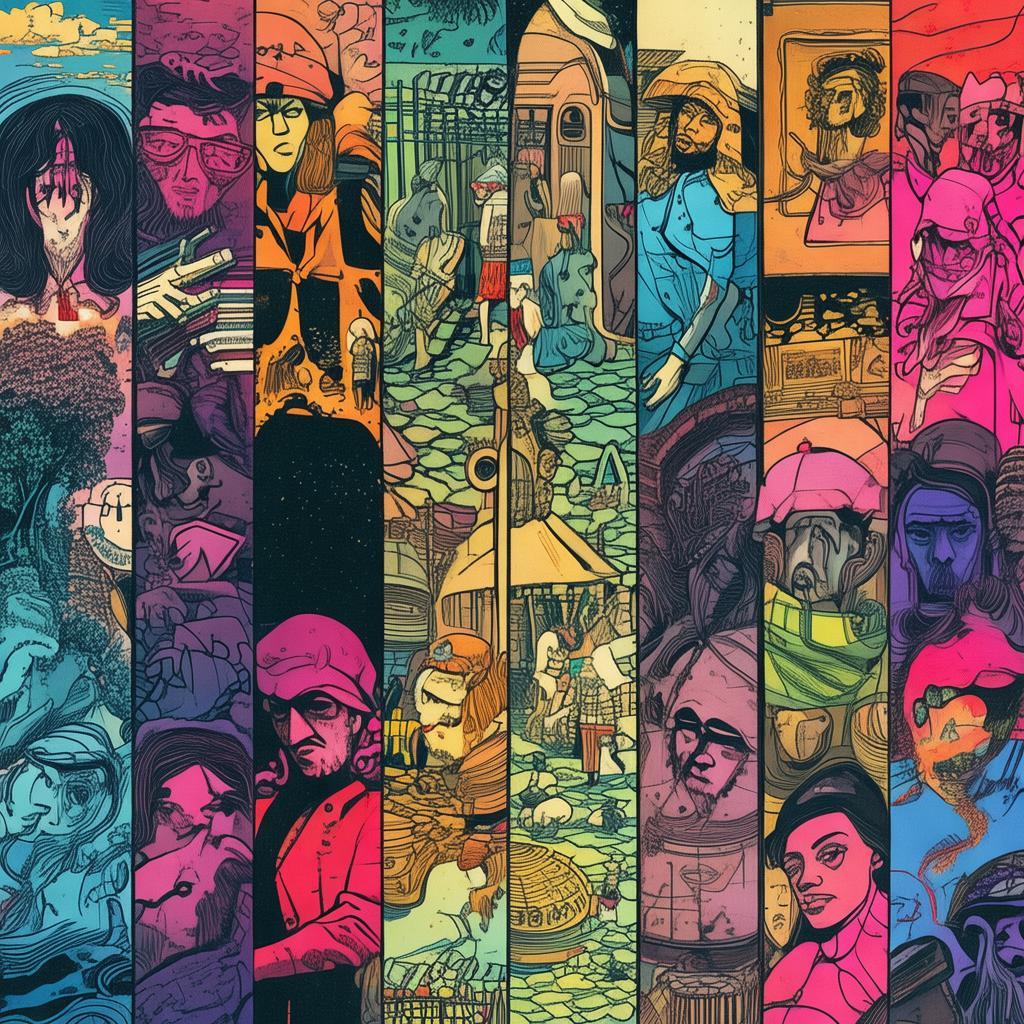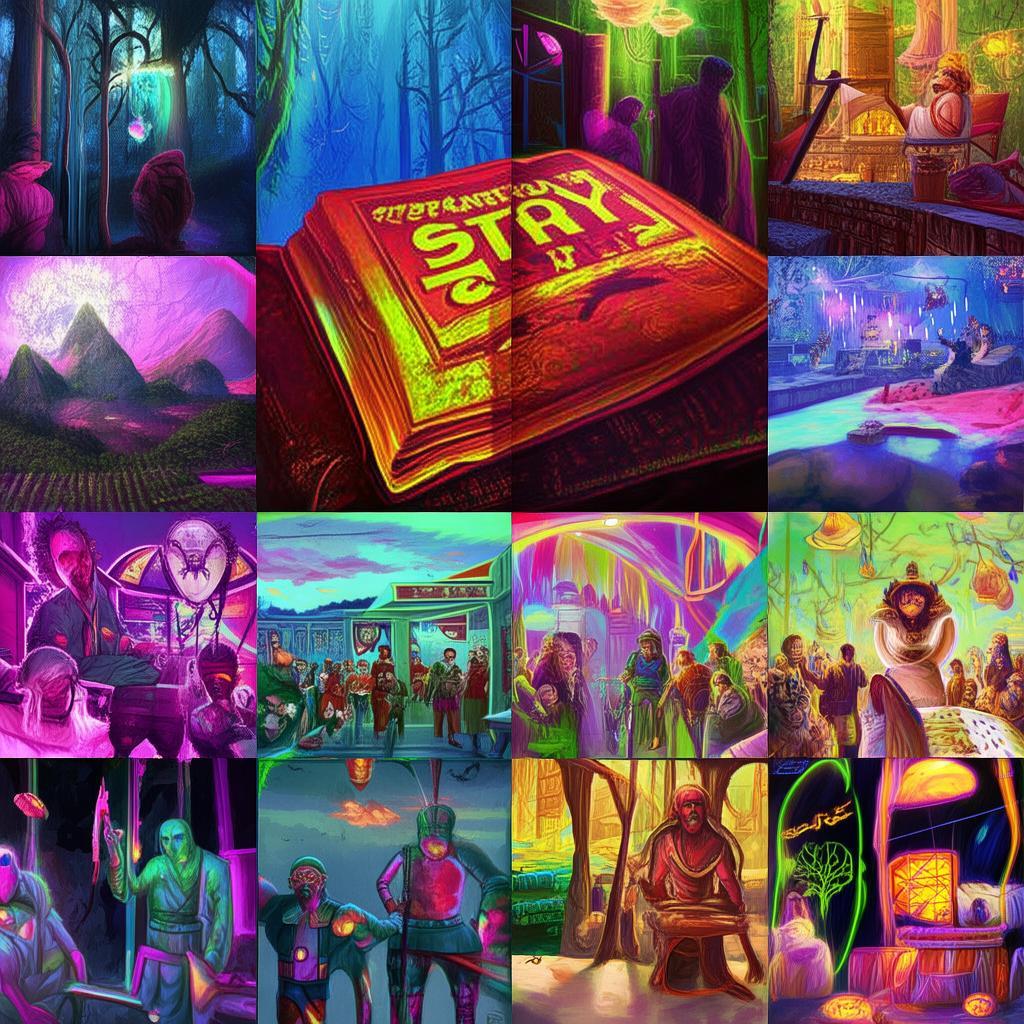The Khan's March From Scorn to Empire
In the heart of the desolate land of Zhan, where the sands whispered tales of forgotten empires, there lived a Khan named Aram. His name was as common as the dust that blanketed the land, and his people knew him not for his might but for his meager holdings. Aram was the Khan of a tribe that had once been a power to be reckoned with, but now, they were but a shadow of their former selves, living in the shadow of the great empires that had risen and fallen over the centuries.
Aram's father, the Khan before him, had been a man of great vision, a leader who had united the scattered tribes of Zhan under one banner. But the Khan had died young, leaving Aram to inherit a kingdom in ruins. The once-great Zhan Empire had been reduced to a series of barren oases and scattered tribes, each struggling to survive in the harsh desert climate.
The people of Zhan looked upon Aram with a mixture of scorn and pity. They saw a young Khan without the power or the resources to restore their former glory. "Aram is but a puppet," they whispered among themselves, "a figurehead for a kingdom that has no future."
But Aram was not one to be deterred by the weight of expectations. He was a Khan of the heart, not the throne. He had seen the strength in his people's eyes, the resilience in their hands, and the courage in their spirits. He knew that the true power of Zhan lay not in the wealth of its coffers or the size of its army, but in the unity of its people.
The Khan's March began on a crisp morning, as the sun rose over the horizon, casting long shadows across the desert. Aram stood before his people, his voice steady and his eyes filled with determination. "We will rebuild Zhan," he declared. "We will not be remembered as the ones who fell, but as the ones who rose."
The people of Zhan listened, their hearts heavy with the weight of their past. They had heard promises before, but none had ever come to pass. Yet, there was something in Aram's eyes that gave them hope. He was not asking for their trust; he was offering them a choice. "Join me," he said, "and we will forge a new empire, one that will stand the test of time."
The Khan's first challenge was to unite the scattered tribes. Each tribe had its own leader, its own customs, and its own reasons for resisting the idea of joining forces. Aram traveled from oasis to oasis, from camp to camp, his words a beacon of hope in the barren landscape.
"Think of your children," he would say. "Think of the future they will inherit. Will it be a land of desolation and despair, or will it be a land of opportunity and prosperity?"

The leaders of the tribes were skeptical, but Aram's words were not hollow. He offered them a vision of what Zhan could be, a vision that included not just the Khan, but every member of every tribe. "We will build together," he said, "and together, we will be stronger than we ever were apart."
One by one, the tribes agreed to join the Khan's cause. The first to join were the nomadic tribes, who saw in Aram a leader who understood their way of life and respected their traditions. Then came the oasis tribes, who saw in the Khan a man who could bring water to their lands and prosperity to their people.
The march of the Khan was not without its challenges. There were those who remained loyal to the old ways, who believed that the Khan's vision was a pipe dream. They plotted against him, spreading rumors and sowing seeds of doubt among the people.
But Aram was not one to be swayed by such tactics. He faced his enemies head-on, using his wisdom and diplomacy to turn adversaries into allies. "We are all part of the same story," he would say. "And the story is not yet finished."
The march continued, and with each step, the empire of Zhan grew stronger. The Khan's army was not large, but it was fierce and determined. They fought not just for land and power, but for a future that was worth living for.
The climax of the Khan's March came when they faced the greatest threat yet: the combined forces of the neighboring empires, who saw Zhan's rise as a threat to their own dominance. The Khan's army was vastly outnumbered, but they were not outmatched. They fought with the passion of the underdog, the ferocity of the oppressed, and the determination of the free.
In the heart of the battle, Aram found himself facing the leader of the opposing forces. The Khan's opponent was a man of great power and cunning, a man who had seen the rise and fall of empires. But Aram was not cowed by the man's presence. "You may have the power," he said, "but we have the will. And in the end, it is the will that prevails."
The battle raged on, and in the end, it was the Khan's army that emerged victorious. The neighboring empires were defeated, and Zhan stood as a beacon of hope and strength in the region. The Khan's March had turned the tide, and the empire of Zhan was reborn.
The Khan's empire was not without its problems. There were still those who resisted the new order, who believed that the Khan's vision was too grand, too ambitious. But Aram was patient, understanding that change takes time. He worked to build a government that would serve his people, not just his own interests.
The Khan's March From Scorn to Empire was not just a story of one man's rise to power. It was a story of the human spirit, of the resilience that lies within each of us, and of the power of unity in the face of adversity.
As the years passed, the empire of Zhan flourished. The once-desolate land was transformed into a place of prosperity and peace. The Khan's name was remembered not as a conqueror, but as a leader, a man who had the courage to dream and the strength to make that dream a reality.
The ending of the Khan's story was not one of finality, but of possibility. The empire of Zhan was a testament to the fact that even in the darkest of times, there is always hope. And with hope, there is the potential for greatness.
✨ Original Statement ✨
All articles published on this website (including but not limited to text, images, videos, and other content) are original or authorized for reposting and are protected by relevant laws. Without the explicit written permission of this website, no individual or organization may copy, modify, repost, or use the content for commercial purposes.
If you need to quote or cooperate, please contact this site for authorization. We reserve the right to pursue legal responsibility for any unauthorized use.
Hereby declared.









